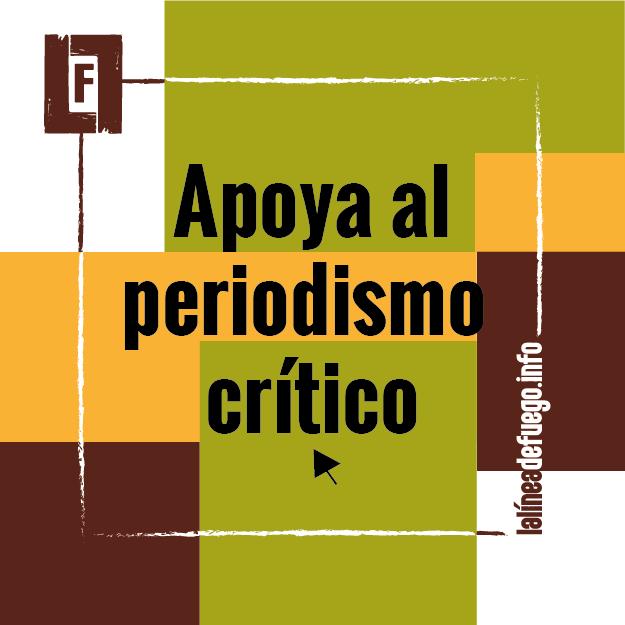06 November 2015
The October 25 elections brought an apparently contradictory result: positioning as frontrunner in the race to the Casa Rosada (Presidential Palace) a center-right party, in a national context in which a generalised centre left stance is far from disappearing. It could be said that Mauricio Macri and Cambiemos ** already owned the rightwing vote and therefore went in search of the progressives, but Macri’s need to overplay right up to the end in order to rid himself of a neoliberal, privatizing stigma – while at the same time avoiding the demagoguery of the ‘iron fist’ – would appear to demonstrate that his vote is not that of a rightwing electorate. Macri’s vice presidential candidate Gabriela Michetti is consequently on record as saying they will not and never have privatized anything, that she was wrong to vote against equal marriage, and will keep on with the trials of dictatorship thugs, etc. And then we have Macri being photographed with the indigenous leader Felix Diaz – whom the President has decided to ‘never ever’ receive, – while hiding his clearly neoliberal economists and displaying their “development” or “Keynesian” counterparts.
In the end, Macri’s Ecuadorian advisor Jaime Duran Barba got it right, transforming change into a significant vacuum based on widespread weariness with the government and the complete absence of any imaginary future in the speeches of Daniel Scioli, the government candidate. Continuity-change (including Kirchnerism-antikirchnerism as a central variable), allowed Macri’s PRO-UCR front to overcome resistance to Macri himself. But in Province of Buenos Aires, the profile of Maria Eugenia Vidal added powerful element to a contest profiled as a dispute between the ‘people’ and the ‘caste’ (the barons-the men- of the areas outlying Buenos Aires). As a young, dynamic, middle-class, casually dressed, intelligent mother, a normal woman with sensible speech and social sensitivity, Vidal is a perfect example of the new politics (or post conflict politics) image purveyed by the PRO. An image of “proximity”, that in many ways contrasts with that of Cristina Kirchner – seen as rich, isolated in power, self-important, etc. (and also an opponent of the defeated Pro Candidate Del Sel). And added to all this we had an effective and spectacular projection of an (overrated) local management in the City of Buenos Aires.
In the context, the argument of the Kirchner or filo kirchnerista left that the November 22 election might be comparable to the French run off in 2002 between Jacques Chirac and the far-right Jean-Marie Le Pen (in which the French Left voted for Chirac while holding their collective nose) is not really relevant. Basically because most of the PRO leaders bear little resemblance to Le Pen and could more easily be compared to the Chirac democratic right. The argument that the PRO is the organic right and that Scioli maintains a link with popular interests is also convoluted: for one, because it is the same argument that was used to support ex-President Menem in 1989 (a counter argument could be that when Peronism makes the adjustment it is often more effective than the non-Peronists in controlling the situation and defeating the opposition). The effectiveness of the “stockade” is also to be seen.
That said, Cambiemos is the domain of the center-right and a victory will have consequences for various areas of national and regional policy. There is no doubt that the PRO is a party with a clear pro-business sensibility and links a Catholicism open to new spiritualities and volunteering, to think tanks and liberal or center-right international networks, in addition to triggering images of political modernity ( see the book Mundo PRO by G. Vommaro, S. Morresi and A. Bellotti).
The Scioli candidacy on the other hand would imply a reconstruction of Peronism as a coalition of provincial leaders, with a relatively important slice of Kirchnerism, and whose possible future direction is basically unknown. And Macri’s Cambiemos derives its strength due to the fact that Scioli has not been able to propose anything more attractive than an improved version of the present: a kind of dynamic stagnation. And here perhaps is where we can find the reason for the missteps that the ruling party has taken in recent days, days than now seem more like months or years.
* Managing editor of New Society Magazine. (Nueva Sociedad | Democracia y política en América Latina) www.nuso.org
** Cambiemos is a coalition formed in 2015, consisting of Macri’s PRO, the Coalición Cívica ARI, and the Unión Cívica Radical
Original Article: http://www.perfil.com/mobile/?nota=%2Fcontenidos%2F2015%2F11%2F06%2Fnoticia_0022.html
Translation: Lalineadefuego


